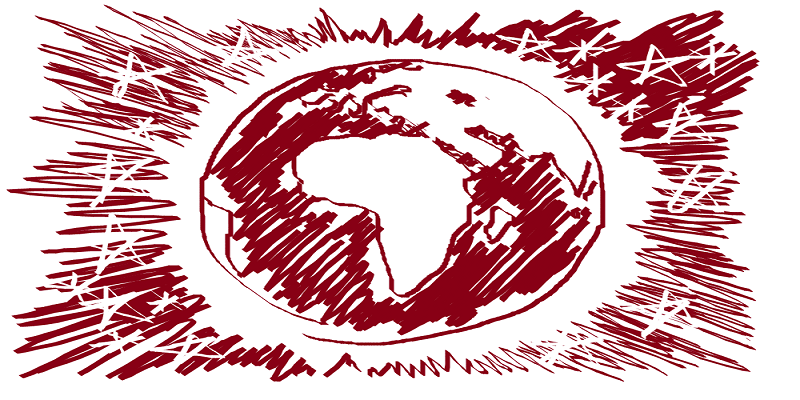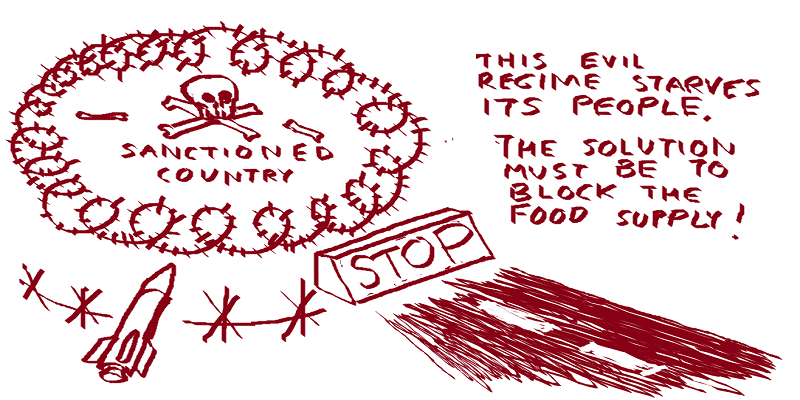 Arguments about the reality of climate change aside, desertification and depletion of water are undisputed facts, as are conflicts related to growing water scarcity.
Arguments about the reality of climate change aside, desertification and depletion of water are undisputed facts, as are conflicts related to growing water scarcity.
Melting of glacial ice is also a fact, and carries perhaps just as many consequences for the future of confrontation and conflict among states. Another politically heavy consequence of climate change, it appears to be benefiting Russia more clearly than any other power. This could also signal a correlation between climate change and war or the spectre of war.
It’s easy to overlook brute force realities that lead to conflicts, getting caught up in impassioned contests of ideology and rhetoric instead. The war in Syria for example has drawn the attention of news media almost exclusively to questions about one man, President Bashar al-Assad, and his future in the country. Such a narrow vision neglects the wider social, historic, geopolitical and natural realities that made the complicated conflict happen. One argument exists that the whole conflict actually began because of water shortages.
Climate change and war driven by scarcity
There are similar arguments that much of the conflict in Israel/Palestine is related to control of water. Water is for more than just drinking. It also enables irrigation, the cultivation of crops, and with it the supply of food to an entire population. Loss of water can mean nothing less than the annihilation of whole populations and the disintegration of states.
Scientists who present global warming to the public make a prediction about something that will eventually reach out of the science classroom and affect politics. While sea levels can be expected to rise, some areas of the world may simply be rendered unlivable by civilised standards due to the heat alone. Equatorial regions may eventually witness mass evacuations, with populations fleeing the heat for Europe and North America instead. Imagine the current so-called refugee crisis affecting Europe due to war-torn regions left by Western military interventions around the world, and multiply that by a hundred or maybe even a thousand times. You may then get an idea of the type of political shock wave global warming could cause.
Turning a greenhouse gas into a resource to avert climate change and war?
Look much further north, and you’ll see the same global warming melting the glacial ice in the Arctic and permafrost in Siberia. Either development is good for one country: Russia. In many ways, Russia’s leadership have bet on their nation’s energy reserves as their biggest political and economic strength, and it is a far-sighted strategy.
As the icecaps retreat, new oil fields are revealed. Russia is the country most exposed to the Arctic, with the largest military presence there, and most experienced in conquering such harsh territory. It is far ahead of the United States or any other country in its militarisation in the Arctic and advancing large territorial claims. This has even included planting flags of the Russian Federation on the seabed.
Melting permafrost in Siberia can cause hidden methane gas to rush out, which can be easily ignited – or collected. Sometimes it will explode underground, creating sinkholes. While its release further accelerates the rate of global warming according to present science, there is also the possibility to extract and use it, adding it to a country’s natural gas reserves. If the Russian leadership are as opportunistic in Siberia as they are in the Arctic, they will be looking to harness this would-be greenhouse gas and and add it to their existing reserves of natural gas, ready to sell to Europe and China. Perhaps climate change and war can both be slowed by such an action, as the CO2 emissions caused by burning natural gas are a far less severe greenhouse gas than the methane produced by doing nothing and letting it escape.
Considering the country is so vast, so cold and so eager to obtain the resources hidden under the icecaps and permafrost, global warming could only be good news for Russia’s long-term interests as a world power.
In sum, there are two predictions I would make about the future relationship between climate change and war. First, I see a diminished and heavily burdened West that may be forced to take perhaps billions of new residents fleeing the heat, bringing with them all sorts of politico-religious tensions and uncertainties. Second, we will see an enlarged and more confident Russia with even greater reserves of oil and natural gas as a result of climate change.
This is not to make value judgments about such developments but to predict they will happen, as is the tradition of futurists.


